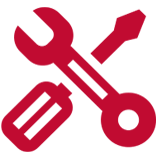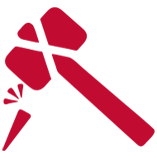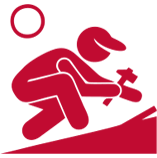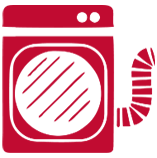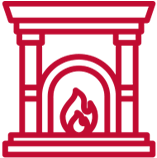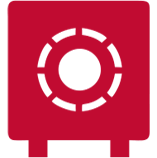The fireplace is often the heart of a Denver home, providing warmth and a cozy ambiance during chilly seasons.
However, it’s crucial to remember that your chimney, the silent sentinel standing atop your roof, requires regular attention and maintenance.
As a Denver homeowner, recognizing the signs of chimney distress is essential in ensuring the safety and integrity of your home.
In this blog, we will explore the top five indicators that your chimney needs professional repair.
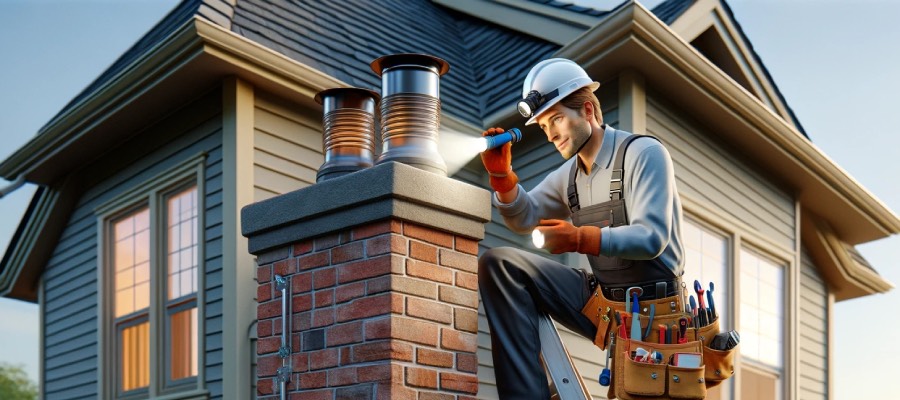
Understanding Chimney Maintenance in Denver
Before diving into the signs of needed repairs, it’s important to understand why chimney maintenance is crucial, especially in a city like Denver.
The region’s diverse weather patterns, ranging from heavy snowfall to arid summers, can significantly affect your chimney’s structure and performance.
 The Role of Regular Chimney Inspections
The Role of Regular Chimney Inspections
Regular chimney inspections are paramount in detecting early signs of wear and tear, preventing minor issues from escalating into costly repairs.
An inspection by a professional can identify potential problems that may not be visible to the untrained eye.
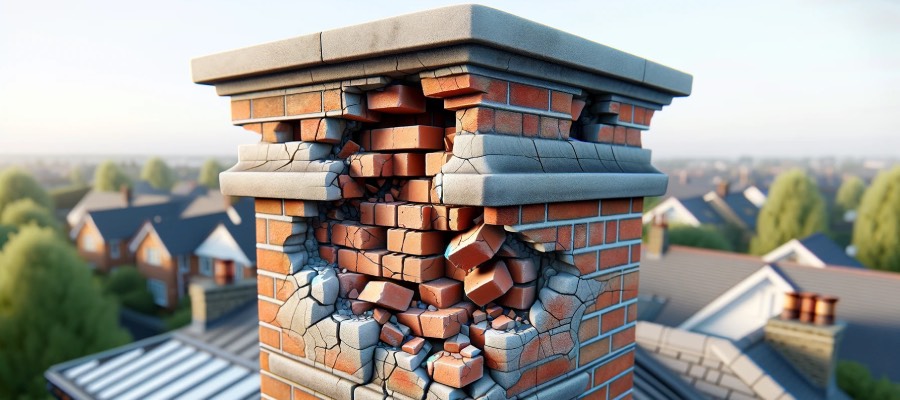
Sign 1: Damaged Mortar Joints
Identifying Mortar Joint Damage
Mortar joints hold the bricks of your chimney together. When these joints are damaged, it can lead to serious structural problems.
In Denver’s fluctuating climate, mortar can deteriorate rapidly.
If you notice any crumbling or deterioration, it’s time to consider brick tuckpointing services.
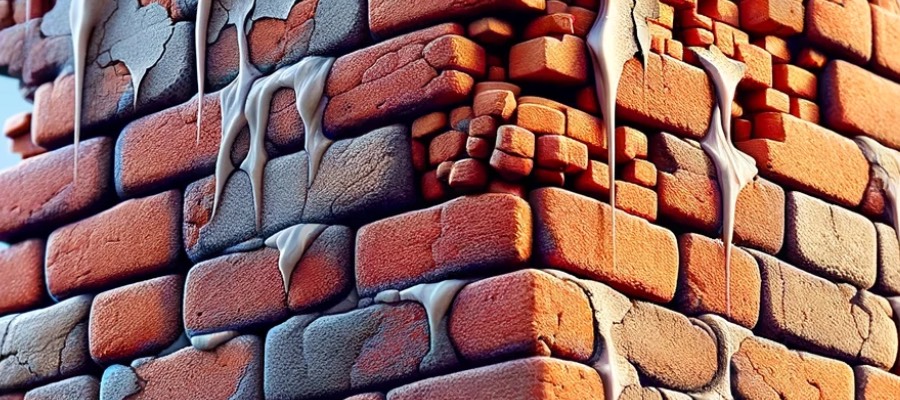
Sign 2: Spalling Bricks
The Dangers of Spalling
Spalling occurs when water enters the bricks or the mortar and causes the surface to peel, pop out, or flake off.
It’s a common issue in Denver, where freeze-thaw cycles are prevalent.
Spalling bricks can compromise the structural integrity of your chimney, making chimney repair essential.
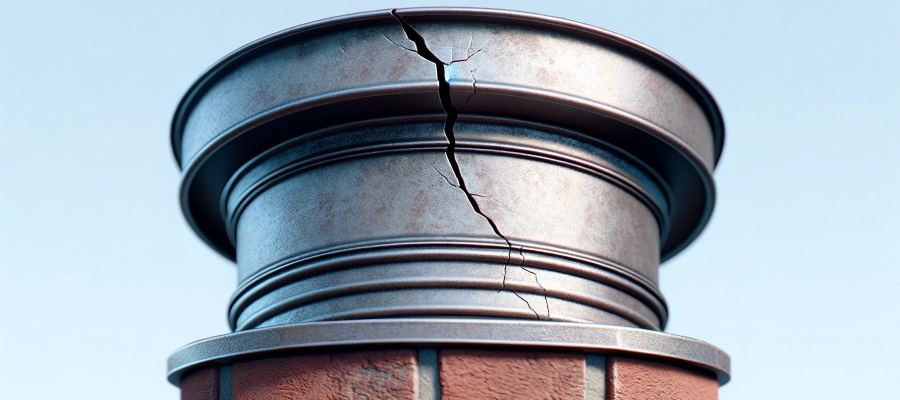
Sign 3: Cracked Chimney Crown
Understanding Crown Damage
The chimney crown, the concrete top of your chimney, is designed to keep out rain and snow.
Cracks or damage in the crown can lead to water infiltration, which is a major concern in Denver’s snowy winters.
Repairing a chimney crown promptly can prevent extensive water damage.

Sign 4: Interior Water Damage
Recognizing Internal Warning Signs
A Water stain on the ceiling or walls near your chimney is a red flag.
In Denver, where snow and rain can be heavy, a leaking chimney can quickly lead to significant interior damage.
This issue often points to the need for chimney lining or cap installation.
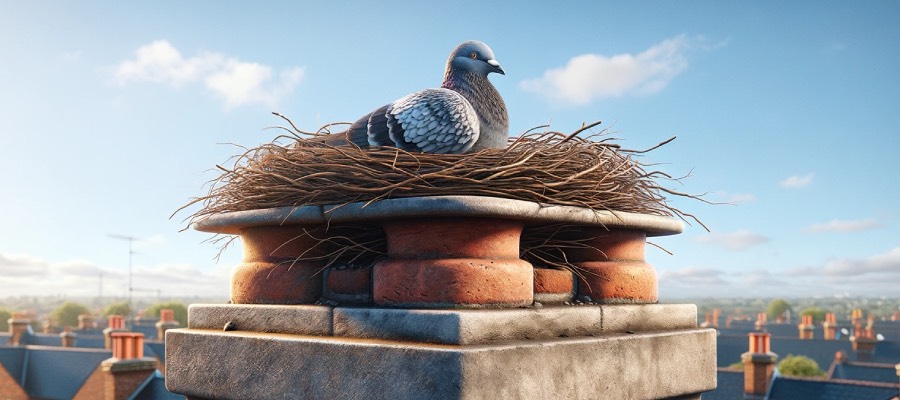
Sign 5: Obstruction or Blockage
The Risks of Chimney Blockage
Blockages in your chimney, such as bird nests or debris, can be hazardous, leading to poor smoke ventilation and even chimney fires.
Regular chimney cleaning and animal removal services are key to maintaining a safe and efficient chimney in Denver.
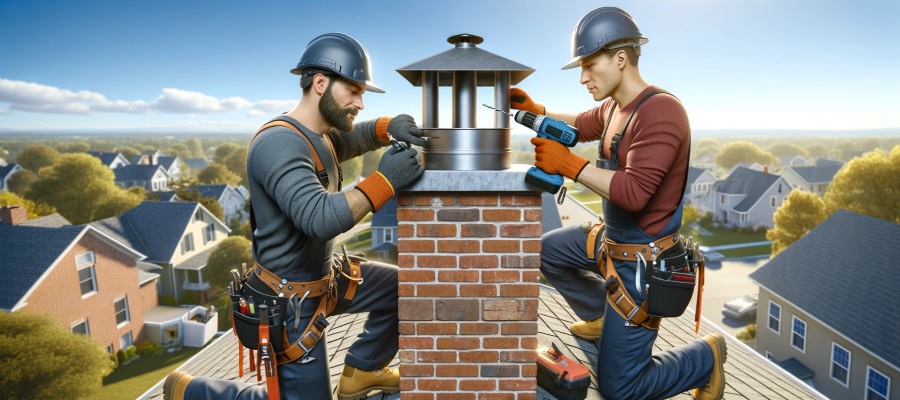
The Importance of Professional Chimney Repair Services
Attempting to repair chimney issues on your own can be dangerous and may often lead to further damage.
It’s vital to entrust your chimney repairs to experienced professionals who understand Denver’s unique environmental challenges.
 Choosing the Right Chimney Repair Service in Denver
Choosing the Right Chimney Repair Service in Denver
When selecting a chimney repair service, consider a company with a strong track record in Denver.
The Chimney Kings are experts in addressing the specific needs of Denver homes.
From firebox repair to roof repair and tarping, their comprehensive services ensure your chimney remains in top condition.
 Additional Services for Comprehensive Chimney Care
Additional Services for Comprehensive Chimney Care
Beyond repairs, The Chimney Kings offer a variety of services to maintain the safety and functionality of your chimney.
These include dryer vent cleaning, fireplace repairs, and a thorough fireplace safety guide.
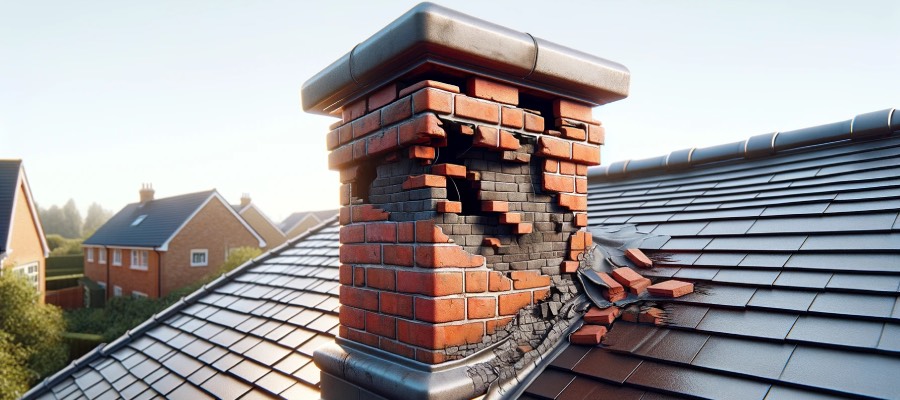
Conclusion: Prioritizing Chimney Health in Denver
In conclusion, being vigilant about the condition of your chimney is crucial for the safety and well-being of your Denver home.
Recognizing the signs of damage and seeking professional help is not just a matter of upkeep; it’s an investment in your home’s future.
For more information or to schedule a consultation, contact us at (303) 331-7978.
 Emphasizing the Importance of Professional Inspections
Emphasizing the Importance of Professional Inspections
Remember, the first step in maintaining a healthy chimney is a professional inspection.
Learn more about the importance of chimney inspections in Denver and why they are crucial for your home’s safety at Denver Chimney Inspection: When, Why, and Importance.
This comprehensive guide aims to help Denver homeowners identify common chimney issues and understand the importance of professional chimney repair services.
By addressing these signs promptly, you ensure the longevity and safety of your chimney, contributing to the overall well-being of your home.
 How Do I Know If My Chimney Needs to Be Replaced?
How Do I Know If My Chimney Needs to Be Replaced?
Knowing when a chimney needs to be replaced rather than just repaired is crucial for the safety and structural integrity of your home.
There are several key indicators that suggest a chimney replacement might be necessary:
Extensive Structural Damage: If your chimney exhibits significant structural issues like large cracks, leaning, or unstable foundations, these are strong signs that a repair might not suffice and a replacement is needed.
Severe Spalling: While minor spalling can be repaired, if the bricks are extensively damaged with large portions crumbling or missing, it indicates that the chimney’s structural integrity is compromised.
Deteriorated Mortar Joints: If the mortar joints are extensively decayed, leading to gaps and severe weakening of the chimney structure, a replacement might be the safest option.
Aged Chimney: Chimneys that are several decades old and haven’t been well-maintained often require replacement due to the accumulative effects of wear and tear over time.
 How Do You Know If Your Chimney Needs to Be Rebuilt?
How Do You Know If Your Chimney Needs to Be Rebuilt?
Determining whether your chimney needs rebuilding involves assessing the extent of the damage:
Visible Cracks or Damage: Significant visible damage, particularly in the chimney’s structure or on the inside of the flue, often necessitates a rebuild.
Evidence of Water Damage: Persistent water damage, such as leaking, can weaken the chimney structure over time, indicating a potential need for rebuilding.
Deteriorated Lining: If the lining of the chimney is extensively cracked or damaged, a complete rebuild might be required to ensure safe operation.
Chimney Fire History: If your chimney has experienced a chimney fire, the structural integrity might be compromised to an extent where rebuilding is the safest option.
 How Do You Know If Something Is Wrong With Your Chimney?
How Do You Know If Something Is Wrong With Your Chimney?
There are several signs that can indicate a problem with your chimney:
Unusual Odors: Foul or unusual smells coming from the chimney, especially when it’s not in use, can indicate issues like mold growth or excess moisture.
Smoke Issues: Difficulty in drawing smoke up the chimney or smoke entering the room can signal blockages, structural issues, or flue problems.
White Staining: White staining or efflorescence on the chimney exterior suggests excess moisture within the chimney, which can lead to deterioration.
Rust: Rust on the damper or firebox is a clear sign of excessive moisture, which can indicate a serious problem with the chimney.
 What Are the Signs That Your Chimney Needs Cleaning?
What Are the Signs That Your Chimney Needs Cleaning?
Chimney cleaning is essential for safe operation. Indicators that your chimney needs cleaning include:
Soot Buildup: Visible soot accumulation around the chimney or fireplace is a clear sign that cleaning is overdue.
Bad Smells: An unpleasant smell emanating from the fireplace, especially during humid days, can indicate creosote buildup.
Poor Fire Performance: If fires don’t burn as well as they used to, or you notice excessive smoke, it could be due to a clogged chimney.
Thick Creosote Layers: A thick, tar-like layer of creosote inside the chimney is a fire hazard and indicates immediate cleaning is needed.


